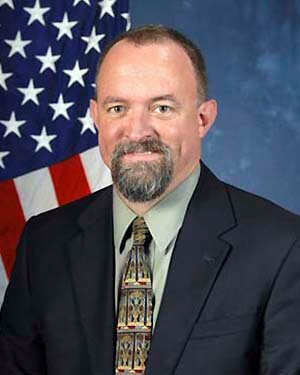
Bio
Dr. Robert “Bob” Wettemann, Jr. received his B.A. with Honors in History from Oklahoma State University in May 1993. He attended Texas A&M University, earning a M.A. (1995) and Ph.D. (2001) in History, with emphases in U.S., Military, and Public History. He spent six years in the History Department at McMurry University in Abilene, Texas, earning the rank of Associate Professor and serving as the director of the institution’s Public History program.
Beginning in 2007, he spent two years as a Visiting Professor in the Department of History at the U.S. Air Force Academy. After a brief tenure with the Command Historian’s Office of the U.S. Army Special Operations Command, he returned to the U.S. Air Force Academy to serve as Director of the U.S. Air Force Academy Center for Oral History and as the Max F. James Distinguished Researcher in Character and Leadership Development in the U.S. Air Force Academy Center for Character and Leadership Development.
He currently serves as an Associate Professor at the U.S. Air Force Academy Department of History. He is the author of Privilege vs. Equality: Civil Military Relations in the Jacksonian Era, 1815-1845 (Praeger Security International, 2009), Rhino Tanks and Sticky Bombs: GI Ingenuity in World War II (University of Oklahoma Press, 2025), and numerous other articles and book chapters on U.S., military, and public history. In the fall of 2023, he served as Historian-in-Residence at Philmont Scout Ranch, Cimarron, New Mexico, and is currently working on a new book project entitled Philmont: A University of the Outdoors.
Education
Ph.D., History, Texas A&M University (2001)
Master of Arts, History, Texas A&M University (1995)
Bachelor of Arts with Honors, History, Oklahoma State University (1993)
Professional Experience
Associate Professor, Department of History, U.S. Air Force Academy (2019 to present)
Historian-in-Residence, Philmont Scout Ranch (Fall 2023)
Assistant Professor, Department of History, U.S. Air Force Academy (2016-2019)
Max F. James Distinguished Researcher in Character and Leadership Development/Director, USAFA Center for Oral History (2014-2016)
Director, U.S. Air Force Academy Center for Oral History (2010-2016)
Historian, U.S. Army Special Operations Command, Fort Bragg, North Carolina (2009-2010)
Visiting Professor, Department of History, U.S. Air Force Academy (2007-2009)
Associate Professor, Department of History, McMurry University, Texas (2007-2009)
Director, Public History Program, McMurry University, Texas (2002-2007)
Assistant Professor of History, McMurry University, Texas (2001-2007)
Honors & Awards
Daughters of the American Revolution Community Service Award (2024)
Department of the Air Force Award for Civilian Achievement (2023)
Outstanding Academy Educator, U.S. Air Force Academy Department of History (2018)
Stephen L. Orrison Award for Mentoring Excellence, U.S. Air Force Academy Department of History (2017)
Clio Award for Outstanding Contributions to the U.S. Air Force Academy Department of History (2012)
St. George Episcopal Award, Pikes Peak Council, Boy Scouts of America (2012)
McMurry University Graduates’ Faculty Appreciation Award (2004)
Phi Alpha Theta History Honor Society (1993)
Eagle Scout (1986)
Research and Scholarly Interests
American History
Military History
Public History
Publications
Rhino Tanks and Sticky Bombs: GI Ingenuity in World War II (Norman: University of Oklahoma Press, 2024).
“The 4th Tank Battalion in the Pacific: A Case Study in Field-Inspired Ingenuity,” Marine Corps History 9 (Summer 2023), 16-30.
“Gideon Pillow,” chapter in Worst Generals in History, John Jennings and Charles Steele, eds., (London: Reaktion Publishers, 2021).
“The Military Professional and Society” Section editor for Mark Grotelueschen, Ed., The Harmon Memorial Lectures in Military History, 1988-2017 (Maxwell AFB, Montgomery, AL: Air University Press, 2020), including essays by:
Victor Davis Hanson
Dave R. Palmer
Shannon E. French
Richard H. Kohn
Andrew Bacevich
Brian McAlister Linn
“War of 1812,” and “Mexican War,” chapters in Daily Life of U.S. Soldiers, Paul Springer and Christopher Mortenson, eds., (Westport, CT: ABC-CLIO Publishers, 2019).
“American Weaponry in the Battle of New Orleans,” in The Battle of New Orleans Reconsidered, Curtis Manning, ed., (New Orleans: Louisiana Institute of Higher Education, 2014), 186-204.
“USAFA History at Fifty Years: Curriculum, Teaching, and the Next Generation of U.S. Air Force Leadership,” in Edward A. Kaplan, ed., High Flight: History of the U.S. Air Force Academy (Chicago: Imprint Publications, 2011), 163-174.
Privilege vs. Equality: Civil Military Relations in the Jacksonian Era, 1815-1845 (Santa Barbara, CA: Praeger Security International, 2009).